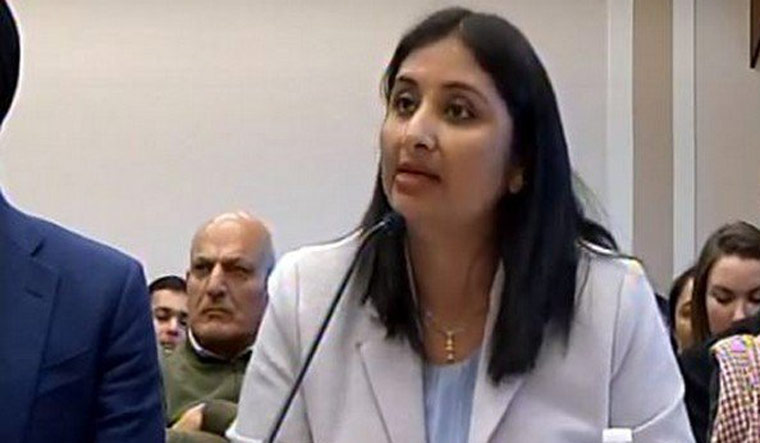The testimony by an Indian columnist from Kashmir to a hearing of a committee of the US Congress has gone viral for her powerful recollection of the persecution of Kashmiri Pandits and activities of Islamic extremists.
Sunanda Vashisht, who has written for multiple news portals, has worked extensively on Jammu and Kashmir. Vashisht was testifying at a hearing of the US Congress by the Tom Lantos Human Rights Commission on Thursday. The Tom Lantos Commission's hearing was focused on the human rights situation in Jammu and Kashmir after the the abrogation of Article 370 in August and the consequent security clampdown in the state.
Well done @sunandavashisht. The voice of those who need to be heard. Human rights can not be limited in its coverage. #Article370 #KashmirInUSCongress https://t.co/FPPbIQsDfE
— Nirmala Sitharaman (@nsitharaman) November 15, 2019
PTI had reported that the panel for the Tom Lantos Commission hearing on Kashmir was "loaded against India". One of the panellists was Yousra Fazili, a Kashmiri American whose uncle had been detained for organising stone pelting in the Kashmir valley. Another panellist was Arjun Sethi, a lawyer and professor, who has been a vehement critic of the Narendra Modi government.
The Tom Lantos Commission is named in honour of Tom Lantos, a late Congressman who was regarded as a friend of India.
In her testimony, Vashisht declared terrorists from Pakistan had caused an "ISIS level" of brutality in Kashmir, 30 years before the West came to know of the nature of radical Islamic terror. Vashisht referred to the legacy of Lantos and his observation that Indians and Jews have been targets of Islamic terror.
Vashisht also reminded the Commission of the Daniel Pearl, a Wall Street Journal reporter, who was killed by terrorists in Pakistan in 2002. Pearl's last words were on his Jewish descent. Vashisht began her testimony, harping on Pearl's testimony: "My father is a Kashmiri Hindu, My mother is a Kashmiri Hindu, I am a Kashmiri Hindu and our homes and lives in Kashmir were destroyed by radical Islamic terrorism."
also read
Vashisht described herself as a "member of the minority community from Kashmir that was victim to the worst ethnic cleansing witnessed in independent India". Vashisht spoke of the killings of Kashmiri Hindus, who were targeted for their faith and called herself "their voice". Vashisht even spoke of B.K. Ganjoo, an engineer who hid from terrorists in a container of rice. Vashisht claimed Ganjoo's location was revealed by his neighbours and he was shot inside the container. “The militants forced Ganjoo's wife to eat the blood-soaked rice," Vashisht told the hearing.
Supporting the abrogation of Article 370, Vashisht declared, "India's democratic credentials are unmatched. The country has successfully, in a democratic set-up, defeated insurgencies in Punjab and the northeast. It is time to strengthen India against such insurgencies and the human rights problems will be solved forever."
Declaring Kashmir was always an integral part of India, Vashisht said, “There is no India without Kashmir, and no Kashmir without India."
Finance Minister Nirmala Sitharaman was quick to applaud the testimony of Sunanda Vashisht. She tweeted, "Well done @sunandavashisht. The voice of those who need to be heard. Human rights can not be limited in its coverage."


